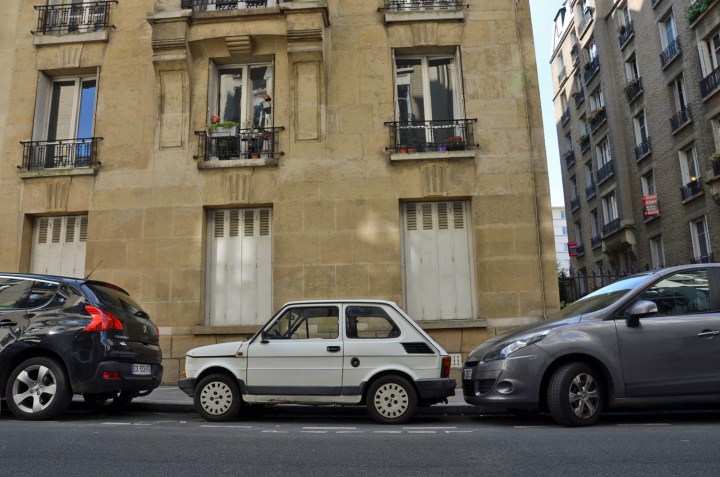
All Parisian motorists need to put a sticker (officially called an air quality certificate) on their car’s windshield that denotes which set of emissions regulations their engine complies with. The stickers will help law enforcement officials tell how old a car is — and whether or not it’s allowed on the streets — as motorists drive through random checkpoints set up across Paris. Ignoring the ban will initially cost Parisians €35 (about $40), but the fine will go up to €45 (roughly $50) in a few months’ time. The ticket will be considered a minor offense — one that’s on par with getting a parking violation.
Pre-1997 cars are only banned from Paris between 8 a.m. and 8 p.m. on weekdays. That means you can still drive a Citroën BX wagon, a Fiat 126 Bis, or a Renault 25 (pictured above) to the Eiffel Tower at midnight, or on a Sunday. And while the ban makes no distinction between gasoline- and diesel-burning models, officials have made a few notable exceptions.
Cars that are over 30 years old and registered as classic vehicles can enter the city limits all day, every day. Similarly, companies that rely on classic cars to make a living are still allowed to operate in Paris. This is important, as there are dozens of small firms that specialize in renting iconic classics (such as the Citroën 2CV) to tourists. Finally, all government vehicles are exempt from the ban.
Read more: Mercedes begins selling like-new classic cars through its official museum
While the law has sparked numerous protests and lawsuits over the past few months, officials remain committed to the ban. Clearly, the solution for Parisian motorists who want to continue driving to work is to buy a late-model car, but there’s a catch. Paris mayor Anne Hidalgo openly admits that the ban will progressively get stricter, according to French newspaper Le Figaro, and her goal is to keep all cars built before 2010 out of the City of Light by the time 2020 rolls around.






